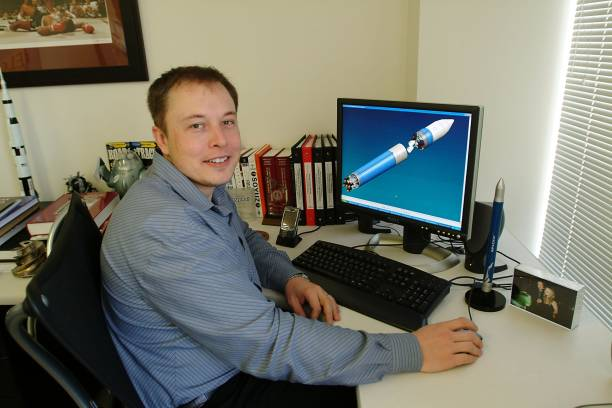
When the third SpaceX rocket exploded, Elon Musk was edging toward a meltdown. The company was on the brink of failure, his entire net worth had been poured into money-losing ventures like Tesla and SpaceX, and this explosion could have been the thing that made it all come crumbling down. Everyone knew it. The mood at the launch sight was sober, perhaps even depressed. The company could be done.
After a minute-long pause, Elon looked up, a glint in his eye. “Pain is not bad, it’s good,” he said. “It teaches you things. I understand that.”
Engineers around him nodded their heads. A manic, industrial energy started to build in the room. As usual, he went back to the purpose of why they were there. The mission. “What the hell do I wanna go off and go to work for? Work for what? Money?” They were going to Mars—who cared about the business?
Elon Musk, the new biography by Walter Issacson, reported on what followed:
“‘I think most of us would have followed him into the gates of hell carrying suntan oil after that,” said Dolly Singh, the human resources director. ‘Within moments, the energy of the building went from despair and defeat to a massive buzz of determination.’”
The next time, they pulled it off, making SpaceX the first privately built rocket to launch from the ground and reach orbit. They had done it with 500 employees, compared to the 50,000 that Boeing had at a similar division. It was the launch that set the company up for the roughly $150B valuation it enjoys today.
So, a confession. This story is a bit of a lie.
The rockets did explode. Elon did make a rousing speech. The engineers did come together and build an incredible company. The only difference is that these quotes are not from Elon Musk—they’re from murderous cult leader Charles Manson. Musk actually said, “There should be absolutely zero question that SpaceX will prevail in reaching orbit. I will never give up, and I mean never.”
And honestly? There isn’t that much of a difference between the two. They both have an ability to make you do crazy things in service to the divine mission.
The cult of Elon
Musk’s terrible, wonderful magic is that he makes you want to go all in. Even me, a person who very much enjoys not working for Elon Musk, finished the book and thought, “Hmm, I kinda want to work for that guy.”
Do you realize how sick of a thought that is? How utterly deranged of a reaction?
Musk is demonstrably, unequivocally an asshole. When I started the book I stuck a Post-It note on the page every time I thought he acted reprehensibly. I soon realized that for the 615-page book, I would need 615 Post-It notes. He fires dozens, if not hundreds, of people based on his mood. He is more than somewhat unstable: constantly self-medicating with Ambien or ketamine, smoking joints on Joe Rogan’s podcast, pounding Red Bull after Red Bull, and barely sleeping. At various points, he diagnoses himself as having Asperger’s or bipolar disorder. He plays video games until 5 in the morning. Between the three mothers of his 11 children, his personal life is conflagration in a waste container (i.e., a dumpster fire).
It is not my place to judge how people conduct their personal lives, but it is his employees who pay the price. The book frequently describes him going “demon mode,” where he fires anyone who disagrees with him, even if they’re innocent. Two to three times a year, he does a “surge”: he sets an arbitrary, totally unrealistic deadline, and forces his employees to work 24/7 until that deadline is met. Anyone who annoys him or underperforms to his standards is immediately fired.
I cannot overstate how bad of a boss my analytical brain would tell me this guy is. Yet I still found myself vaguely wanting to quit the content business and go work with him to be a part of something bigger.
And I’m not alone in this feeling. There are legions of Muskinites. He has a supernatural ability to get the best engineers in the world to pour their souls into his companies. Part of the reason he can fire so many people is because so many other talented technical staff want to come work with him. It is, frankly, a bit spooky how powerful his magic is.
The Only Subscription
You Need to
Stay at the
Edge of AI
The essential toolkit for those shaping the future
"This might be the best value you
can get from an AI subscription."
- Jay S.
Join 100,000+ leaders, builders, and innovators

Email address
Already have an account? Sign in
What is included in a subscription?
Daily insights from AI pioneers + early access to powerful AI tools










Comments
Don't have an account? Sign up!
enjoyable to read.
@Zeromick glad you liked it brad!
I have a bit of a problem with the idea that it's his genius that lets him get away with being an asshole. If poor people break the rules and discard social norms the way rich guys like Musk do, we end up unemployed/homeless/imprisoned. It's the wealth and power that allows people to behave in this way, for good or ill, not any kind of special genius.
At one end of the spectrum, he has made Incredible achievements, I couldn’t do it. At the other end, well at least he is not Charles Manson. That’s a pretty low bar, and why aren’t we digging into that? That’s what’s offering him a lot of leeway to be a childlike maniac. Lebron James has a duty to be a responsible athlete so that kids look up to him and want to be better. Why are we not talking about the utter lack of responsible leadership in tech?
@alex_3418 The fact that Musk went all fascist when he could have been one of the greatest examples of what humans could be, as a responsible technologist, is his greatest failing. Unfortunately, I think the Charles Manson comparison is apt. Musk is insane. The only real difference its that he has an insane amount of power.
I'm not an "Elon fan" and I do try to use critical thinking. So saying that "There isn’t that much of a difference between the two" Charles Manson, a serial Killer, an Elon Musk, is not only the laziest of analogies, but it demonstrates the kind of ad-hominem argumentation that eliminates the credibility of anybody making the assertion... Nuance is dead even among long-form writers. Sad state of affairs we find ourselves in.
@JCX That whole setup was lame. Why do writers try so hard to give us emotional tugs and to put smiles on our face. And please, why do we glorify financial success?!
You missed one significant superpower of Musk's - his ability to get other people to pay for his folly. The government, for example. We are all paying for this sociopath's toys. Like that other stable genius, it's all smoke and mirrors, and someday you'll be writing a mea culpa when his house of cards collapse. I look forward to reading that.
@mattlove1 thanks for the reply Matt. You could argue that some of his newer ventures are somehow subsidized by lower interest rates, but Tesla is a profitable car manufacturer valued at hundreds of billions of dollars. I suppose you could argue that the company's use of federal tax credits are wholly responsible for this success? But all his competitors have access to those subsidies too. And keep in mind those policies were put in place by Democrats, not republicans. SpaceX does receive government contracts but they won in a competitive bidding process against JPL—so if this is "folly" then it is at the level of NASA's budgeting policies. Curious if you have a specific instance in mind that I've missed?
I’m 40% into the book. This captures most of my impressions about the book and its subject.
He needs to renounce his US citizenship (and government contracts and subsidies) or stop supporting the wrong side in a criminal war against a US ally. Or better yet, he should get his ass to Mars.
I am concerned that Musk is the most dangerous person in the world right now. He has too much power and is too unstable. He has shown that he is a literal fascist and could easily be full Nazi. He needs to be punched.